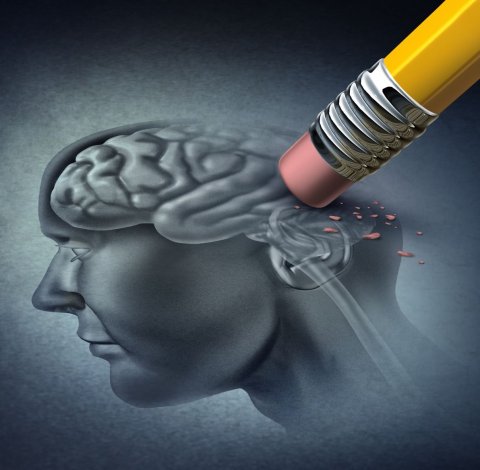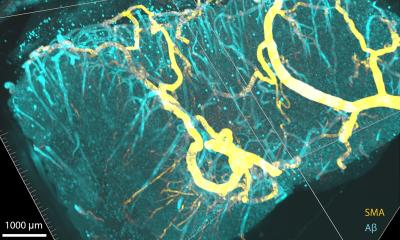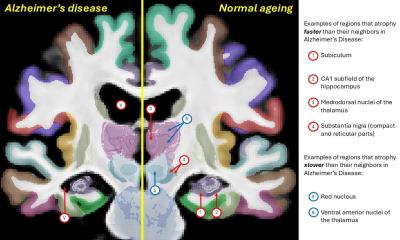News • Rescuing brain cell activity
Alzheimer's: Promising avenue to restore cognitive function
A team of neuroscientists has identified a potential means to address the loss of cognitive function due to Alzheimer’s disease by targeting protein synthesis in mice.
Their findings, reported in the journal Science Signaling, reveal that synthetic pharmaceuticals could rescue the activity of brain cells needed for memory formation. “This work is the first to show that reversing impaired protein synthesis in brains afflicted by Alzheimer's disease through a pharmacological approach is not only feasible, but also effective,” explains Mauricio Martins-Oliveira, a postdoctoral researcher at New York University’s Center for Neural Science and the paper’s lead author.

Image source: Shutterstock/Lightspring
Currently, treatments for Alzheimer’s disease center on the reduction of phenomena linked to the affliction, such as amyloid plaque load, neurofibrillary tangles, and neuroinflammation; the Science Signaling study suggests that the addition of a pharmaceutical normalizing protein synthesis could aid in reviving normal brain activity. “The synthesis of new proteins in the brain is essential for proper neuronal function and, notably, for memory consolidation. We and others have previously shown that impairments in brain protein synthesis contribute memory deficits in Alzheimer’s disease model mice, and that the brains of Alzheimer’s patients exhibit clear signs of impaired protein synthesis. We thus asked ourselves whether rescuing brain protein synthesis might be an approach to improve memory function in Alzheimer’s disease,” said co-senior author Sergio Ferreira, a professor at the Institute of Biophysics at Brazil’s Federal University of Rio de Janeiro (UFRJ).
“Given the complex nature of Alzheimer’s disease, identifying and targeting abnormal molecular pathways that effectively improve cognition has been challenging,” adds co-senior author Eric Klann, a professor in NYU’s Center for Neural Science. “Our findings show that jump-starting protein synthesis in the brain can revive lost cognitive functions. We hope that this work can serve as a step forward in treating this devastating disease.”

Credit: M.M. Oliveira et al., Science Signaling (2021)
The study centered on ISRIB, a synthetic molecule capable of boosting protein synthesis. Developed by Peter Walter at the University of California, San Francisco, ISRIB specifically targets the process of translation initiation—the translation of genetic codes—ultimately stimulating cellular protein synthesis, or the production of proteins. The NYU and UFRJ researchers sought to determine if ISRIB could restore synaptic plasticity—the ability of the brain to change in order to learn—and memory. Previously, they had shown that translation initiation is impaired in Alzheimer’s brains, leading the team to hypothesize that ISRIB could work to re-establish some cognitive functions.
After establishing that key components of the protein synthesis machinery are depleted in the hippocampus—a brain structure known to play a significant role in memory—of Alzheimer's disease patients, the scientists concluded that protein synthesis may also be impaired. They then tested whether ISRIB could rescue the memory of mice with Alzheimer’s-like conditions by administering a series of memory tests (e.g., navigating a maze). Here, they found that ISRIB could indeed restore the memory functions in these mice as well as protein synthesis in the hippocampus.
They also examined whether ISRIB could restore the hippocampal functions and cognition in mice with fully developed Alzheimer's-like afflictions, mimicking the disease at its more advanced stages. Similarly, their results showed that ISRIB could restore synaptic plasticity in the hippocampus, as well as memory functions. Taken together, the researchers’ findings indicated that restoring protein synthesis, aided by synthetic molecules—in this case, ISRIB—could work to restore cognitive processes impaired by Alzheimer’s disease.
Source: New York University
03.02.2021





